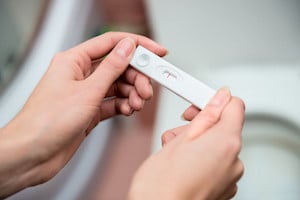We are experiencing a very high volume of calls and messages and ask for your patience. We will answer your portal messages within 48 hours.
We are experiencing a very high volume of calls and messages and ask for your patience. We will answer your portal messages within 48 hours.

 In March 2015, the Practice Committee of the American Society of Reproductive Medicine (ASRM) published a report identifying the recommended methods for evaluating female infertility. We summarize them in this post so you can get an idea of what to expect if you're a woman undergoing fertility testing.
In March 2015, the Practice Committee of the American Society of Reproductive Medicine (ASRM) published a report identifying the recommended methods for evaluating female infertility. We summarize them in this post so you can get an idea of what to expect if you're a woman undergoing fertility testing.
This evaluation is indicated for women who fail to achieve a successful pregnancy after one year of regular unprotected intercourse. In women over the age of 35, this evaluation would be warranted after just 6 months of trying to conceive since there is an age related decline in fertility as women approach the age of 40.
Other reasons to seek an evaluation, regardless of age, include a history of amenorrhea (absence of menses), a diagnosis of advanced endometriosis, and suspected fertility problems of the male partner. An evaluation of both partners should begin at the same time.
The initial consultation should include a comprehensive medical, reproductive and family history as well as a thorough physical exam. Subsequent visits should be conducted in a cost-effective manner so as to identify all relevant factors with initial emphasis on the least invasive methods for detection of the most common causes of infertility.
The first assessment would be directed at determining whether or not a woman is ovulating regularly. The most common causes of ovulatory dysfunction include polycystic ovary syndrome (PCOS), obesity, thyroid disorders and elevated prolactin levels. To assess these conditions, the following tests are performed:
The next assessment addresses ovarian reserve. This term describes reproductive potential as a function of the number and quality of a woman’s eggs. Diminished ovarian reserve describes women who are having regular menses but whose response to ovarian stimulation would be reduced compared to women of the same age. Tests to evaluate ovarian reserve include:
Tests that are used to evaluate the uterus and fallopian tubes include
Other tests that were commonly used in the past to assess female infertility are no longer recommended. These include post-coital testing of cervical mucus and endometrial biopsy. These tests have not been found to be predictive of reproductive success.
If you are worried about your inability to conceive, schedule an appointment with one of InVia's Board Certified physicians at one of our four Chicagoland locations.
Infertility Infertility treatment InVia Fertility Specialists

Entire Website © 2003 - 2020
Karande and Associates d/b/a InVia
Fertility Specialists
